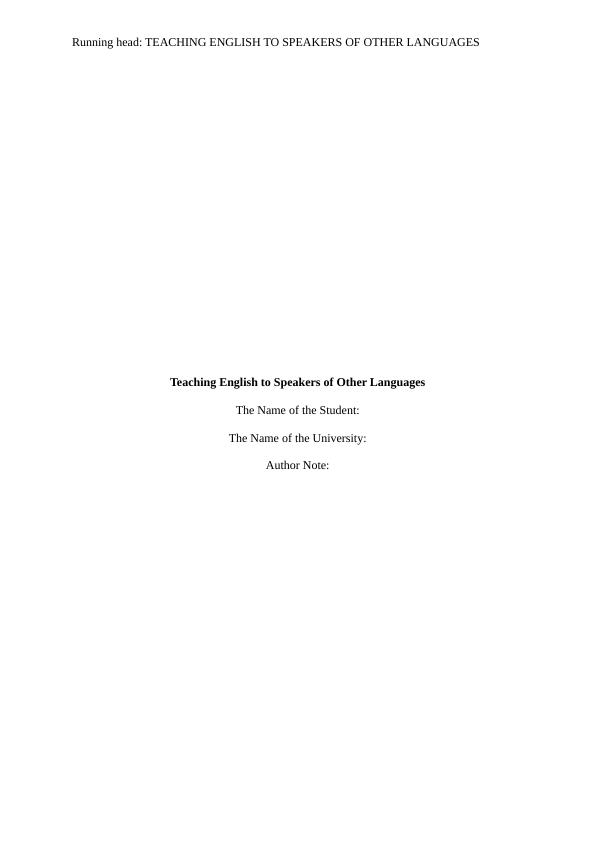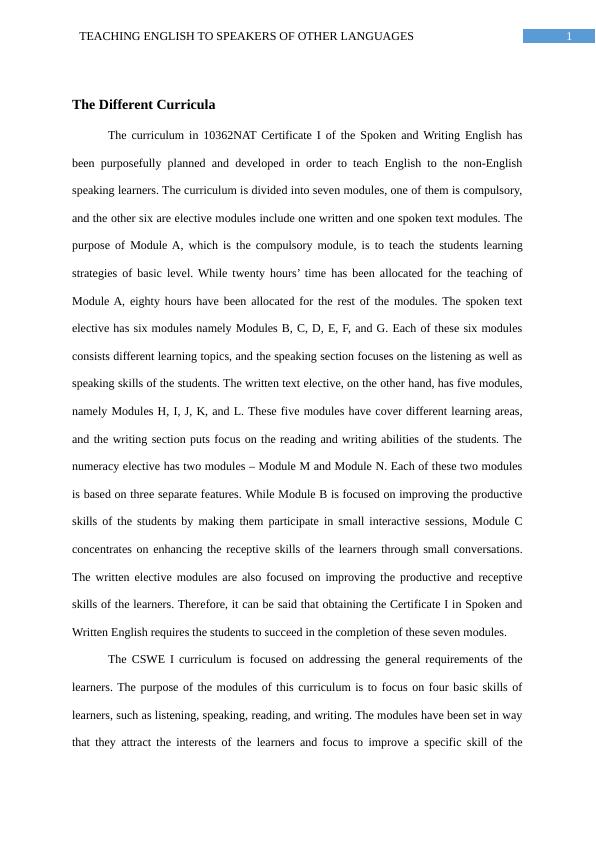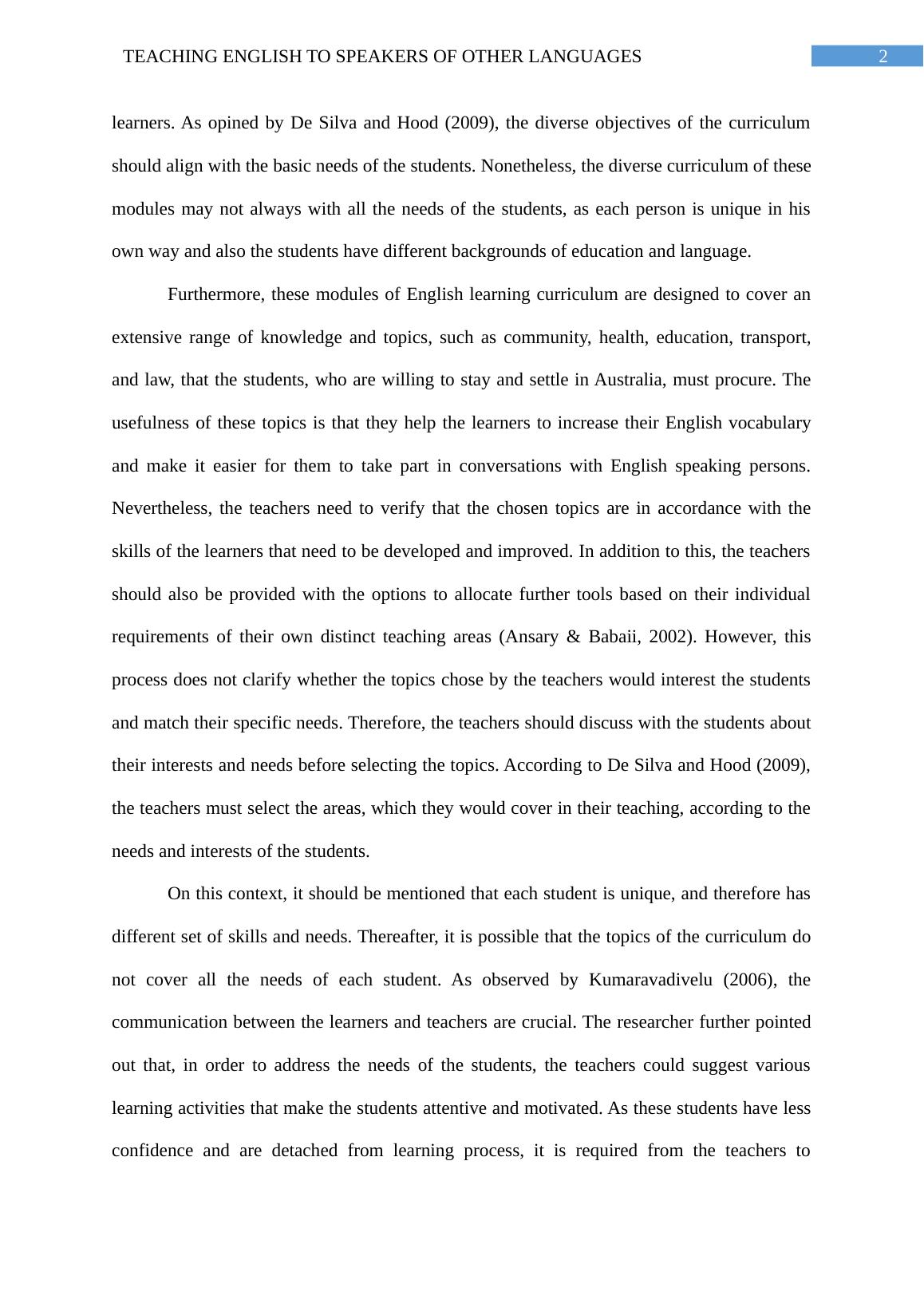Teaching English to Speakers of Other Languages: Curriculum and Resources
8 Pages2302 Words216 Views
Added on 2023-06-04
About This Document
This article discusses the curricula and resources used for teaching English to non-English speaking learners. It covers the different modules of the 10362NAT Certificate I of the Spoken and Writing English and the CSWE I curriculum. It also emphasizes the importance of authentic texts, modern technologies, and feedback systems for effective learning.
Teaching English to Speakers of Other Languages: Curriculum and Resources
Added on 2023-06-04
ShareRelated Documents
End of preview
Want to access all the pages? Upload your documents or become a member.
Language Curriculum Design: Genre-Based Approach for Cosmetology Students
|15
|3626
|494
Challenges Faced by English Language Learners and Teachers in ESL Classrooms
|14
|3546
|249
Teacher Language Awareness | Assessment
|16
|4148
|19
Close Look at Speeches - English Lesson Plan for Year 10 Students
|6
|3508
|252
Language Learning and Teaching: Importance of Second Language Learning and TEFL Methodologies for English Language Teachers
|12
|4006
|132
ESP in the Legal Profession: Strategies for Needs Analysis and Teaching Reading and Listening Skills
|19
|5022
|257



